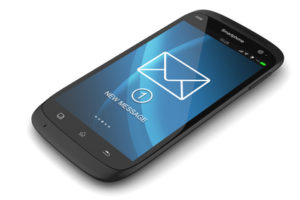The U.S. Court of Appeals for the Eleventh Circuit recently held that a putative class action plaintiff provided his “prior express consent” under the federal Telephone Consumer Protection Act (TCPA) by listing his cell phone number on an information sheet he provided to the caller.
A copy of the opinion is available at: Link to Opinion.
The plaintiff donated blood plasma in return for payment at a blood plasma collection center owned and operated by the defendants, who buy and resell blood products. The plaintiff filled out several documents incident to the donations, including an information sheet that asked for his telephone number.
More than two years later, one of the defendants sent the plaintiff two text messages advertising the blood plasma-for-pay services.
The plaintiff sued, arguing that sending the text messages violated the TCPA’s prohibition on using an automated telephone dialing system to dial telephone numbers without the prior express consent of the called party.
The defendants moved to dismiss, arguing that by providing his telephone number on the information sheet, the plaintiff gave his express consent to receive the text messages.
The district court granted the motion to dismiss, concluding that it lacked subject matter jurisdiction under the Hobbs Act to entertain the plaintiff’s argument that the Federal Communications Commission interpretation of the Act’s “prior express consent” requirement was wrong. The plaintiff appealed.
As you may recall, the Hobbs Act provides that federal courts of appeals have “exclusive jurisdiction to enjoin, set aside, suspend (in whole or in part), or to determine the validity” of the FCC’s regulatory interpretations.
The Eleventh Circuit noted that the FCC has made it clear that the prohibition against auto-dialed calls under the TCPA applies to both voice calls and text message calls. The Court also noted that the FCC over the years had repeatedly reiterated in different contexts that a person who knowingly provides his or her phone number has given prior express consent to call that number, absent instructions to the contrary.
The Court then analyzed whether the district court correctly held that it lacked jurisdiction under the Hobbs Act to review the FCC’s interpretations of the meaning of prior express consent. Relying on its 2014 decision in Mais v. Gulf Coast Collection Bureau, Inc., which reversed the district court’s ruling that the FCC’s 2008 interpretation of prior express consent was inconsistent with the TCPA’s plain language because it violated the Hobbs Act prohibition on a district court review of FCC orders, the Eleventh Circuit concluded that the “district court rightly refused to consider [the plaintiff’s] argument that the [1992 FCC’s interpretation] was inapplicable and contrary to the plain language of the TCPA because the effect would be to ‘set aside, annul, or suspend’ the [FCC’s interpretation] and thus a violation of the Hobbs Act.”
The Court then considered whether the defendants’ sending of the two text messages violated the TCPA as interpreted by the FCC.
The Eleventh Circuit easily concluded that, based on the language of subsection 227(b)(1)(A) and FCC’s interpretations of the prior express consent requirement, by providing his cell phone number on the information sheet, the plaintiff expressly consented to be contacted by the defendants at that number.
Because the complaint on its face indicated that the plaintiff gave his prior express consent to be called on his cell phone, the district court’s dismissal was affirmed.



